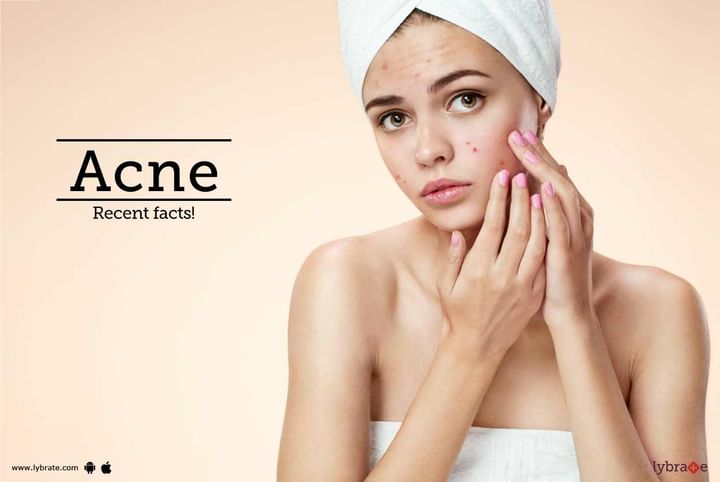Acne - Recent facts!
Puberty brings in a lot of changes in the body (internal as well as external), acne being one amongst them. However, it would be wrong to say that it is a problem that only affects the teenagers as many adults suffer from the acne too. What is interesting is that many people confuse acne with pimples but actually pimples are a type of acne. In this article, we will discuss some important facts related to acne to help you understand the condition better.
Acne, medically termed as Acne Vulgaris is a dermatological condition that can be triggered by a host of conditions.
The sebaceous glands are exocrine glands present under the skin. These glands are responsible for the production of a waxy or oily liquid called the sebum. The follicles act as a bridge connecting the skin pores to the sebaceous glands. The sebum plays an important role as it is involved in bringing the dead skin cells to the skin surface via the follicles. The problem of acne surfaces when certain conditions block the follicles. As a result, the sebum builds up under the skin and together with the dead skin clog the skin pores. This creates a perfect environment for the bacteria Propionibacterium acnes (the bacteria that causes acne) to thrive in.
Factors that can aggravate an acne problem... and how to tackle the situation?
- A hormonal imbalance is often found to be the underlying factor triggering acne among teenagers. Increased production of androgens amongst teenagers is known to cause enlargement of the sebaceous glands. As a result, there is an increased production of sebum, some of which ends up clogging the skin pores (along with the dead skin cells and sometimes bacteria).
- The diet of a person can have a huge influence. Foods with a high glycemic index such as rice, white potatoes, flour, sugar, soda, beverages can not only trigger an acne but also aggravate it. Make sure your diet is supplemented with healthy foods, especially those with a low glycemic index such as fruits, vegetables (non-starchy), rolled oatmeal, beans, peas, legumes, and lentils, to name a few.
- It is important to keep the body hydrated. Drink water and healthy fluids (fresh fruit juice or coconut water) at regular intervals. This will go a long way to eliminate the toxins out of the body.
- Stress is another factor that can trigger acne. Keep yourself relaxed and stress-free. Meditation and exercise can help to lower the stress to a great extent. Do not compromise with the sleep. A daily 6-8 hour of sleep is a must.
- Medications or cosmetics containing corticosteroids, androgens or lithium can also act as a trigger, aggravating the problem.
During an acne, a person should be careful:
- Never touch the acne or try to burst the pimples. It can worsen the situation.
- Scrubbing your face hard when you have an acne is a big NO. Be gentle with your skin.
- Avoid the use of harsh chemicals and cosmetics on your face. In fact, the use of oil free cosmetics seldom causes any problem.
In case you have a concern or query you can always consult an expert & get answers to your questions!



+1.svg)
